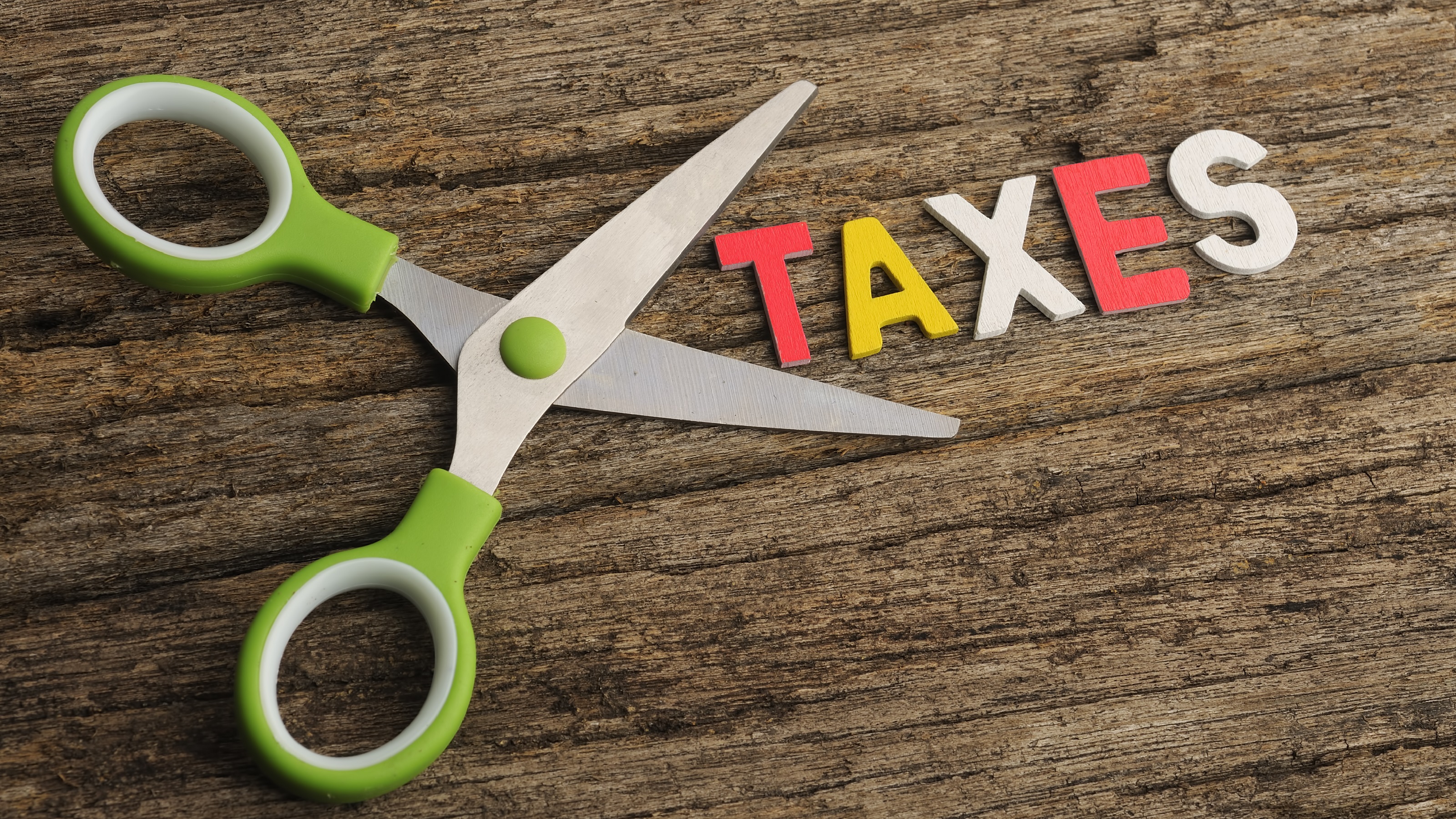Six Ways High-Income Earners Can Optimize Their Tax Strategy
Reduce your tax liabilities by following these expert-recommended tips.


Profit and prosper with the best of Kiplinger's advice on investing, taxes, retirement, personal finance and much more. Delivered daily. Enter your email in the box and click Sign Me Up.
You are now subscribed
Your newsletter sign-up was successful
Want to add more newsletters?

Delivered daily
Kiplinger Today
Profit and prosper with the best of Kiplinger's advice on investing, taxes, retirement, personal finance and much more delivered daily. Smart money moves start here.

Sent five days a week
Kiplinger A Step Ahead
Get practical help to make better financial decisions in your everyday life, from spending to savings on top deals.

Delivered daily
Kiplinger Closing Bell
Get today's biggest financial and investing headlines delivered to your inbox every day the U.S. stock market is open.

Sent twice a week
Kiplinger Adviser Intel
Financial pros across the country share best practices and fresh tactics to preserve and grow your wealth.

Delivered weekly
Kiplinger Tax Tips
Trim your federal and state tax bills with practical tax-planning and tax-cutting strategies.

Sent twice a week
Kiplinger Retirement Tips
Your twice-a-week guide to planning and enjoying a financially secure and richly rewarding retirement

Sent bimonthly.
Kiplinger Adviser Angle
Insights for advisers, wealth managers and other financial professionals.

Sent twice a week
Kiplinger Investing Weekly
Your twice-a-week roundup of promising stocks, funds, companies and industries you should consider, ones you should avoid, and why.

Sent weekly for six weeks
Kiplinger Invest for Retirement
Your step-by-step six-part series on how to invest for retirement, from devising a successful strategy to exactly which investments to choose.
When it comes to taxes, having a higher income may not always be the blessing it’s often thought to be. With a bigger income comes increased tax rates, as moving into a higher tax bracket means a larger portion of income will be taxed at a higher rate. Those earners with multiple streams of income — investment income, capital gains, bonuses and more — can further complicate their taxes.
These factors, paired with the possibility of losing out on certain deductions or credits due to their income, mean high-income earners are often on the lookout for ways to optimize their tax strategy and minimize their tax liabilities, or what they owe.
As financial and tax experts themselves, the members of Kiplinger Advisor Collective know the ins and outs of effective tax strategies. Here, they offer up six ways high-income earners can minimize their tax liabilities and keep more money in their pockets.
From just $107.88 $24.99 for Kiplinger Personal Finance
Become a smarter, better informed investor. Subscribe from just $107.88 $24.99, plus get up to 4 Special Issues

Sign up for Kiplinger’s Free Newsletters
Profit and prosper with the best of expert advice on investing, taxes, retirement, personal finance and more - straight to your e-mail.
Profit and prosper with the best of expert advice - straight to your e-mail.
Maximize contributions to tax-advantaged accounts
“High-income earners can optimize their tax strategy by maximizing contributions to tax-advantaged accounts like 401(k)s, IRAs or health savings accounts (HSAs). This reduces taxable income, lowering their overall tax burden. It’s effective because it not only provides immediate tax savings, but it also allows wealth to grow tax-deferred, enhancing long-term financial planning and retirement savings.” — Stephen Nalley, Black Briar Advisors
Sell investments that have depreciated
“Selling investments that have depreciated since you bought them, also known as tax-loss harvesting, can help you lower your tax burden each year. These losses can also be deducted from your investment gains or other income, up to an annual limit set by the IRS. If your losses are greater than these limits, you can carry them over to the following year to reduce your taxes in future years.” — Justin Donald, Lifestyle Investor
Choose a fee-only CFP
“The development of software analysis tools that can provide an integrated and holistic view of your financial situation, including how your tax liabilities affect the rest of your financial life, has increased significantly. Choosing the right fee-only Certified Financial Planner (CFP®) who offers a cost-effective way to integrate sophisticated and holistic tax planning strategies with financial planning is critical.” — Deborah W. Ellis, Ellis Wealth Planning
Take a three-pronged approach
“There are three important areas to consider for tax efficiency. Deferring taxes: Utilize preferential accounts such as 401(k)s, IRAs and annuities. Managing existing investment income: Place tax-inefficient assets in tax-deferred accounts, harvest tax losses and manage gains and distributions. Reducing future taxes: Use Roth IRAs, health savings accounts, 529s and municipal bonds to limit future taxes.” — Stephen Kates, Annuity.org
Minimize portfolio turnover
“Maximizing tax-advantaged savings to your retirement plan or health savings accounts can reduce your taxable income. Take advantage of charitable contributions, and minimize turnover in your portfolio by investing in transparent, diversified and tax-efficient exchange-traded funds (ETFs).” — Marguerita Cheng, Blue Ocean Global Wealth
Consider your highest-income years
“Explore depreciation. Often, high-income earners get to participate in depreciation on assets bought with debt. Plan for this in your highest-income years to maximize the benefit.” — Justin Brock, Bobby Brock Insurance
Related Content
- Three Tips for Selling Your Business and Getting the Most Value
- Five Ways to Minimize a Higher Capital Gains Tax Rate
- How Tax-Loss Harvesting Helps to Lower Your Tax Bill
- The IRS is Ramping up Tax Audits
The information provided here is not investment, tax or financial advice. You should consult with a licensed professional for advice concerning your specific situation.
Profit and prosper with the best of Kiplinger's advice on investing, taxes, retirement, personal finance and much more. Delivered daily. Enter your email in the box and click Sign Me Up.
Kiplinger Advisor Collective is the premier criteria-based professional organization for personal finance advisors, managers, and executives.
-
 The New Reality for Entertainment
The New Reality for EntertainmentThe Kiplinger Letter The entertainment industry is shifting as movie and TV companies face fierce competition, fight for attention and cope with artificial intelligence.
-
 Stocks Sink With Alphabet, Bitcoin: Stock Market Today
Stocks Sink With Alphabet, Bitcoin: Stock Market TodayA dismal round of jobs data did little to lift sentiment on Thursday.
-
 Betting on Super Bowl 2026? New IRS Tax Changes Could Cost You
Betting on Super Bowl 2026? New IRS Tax Changes Could Cost YouTaxable Income When Super Bowl LX hype fades, some fans may be surprised to learn that sports betting tax rules have shifted.
-
 I'm a Financial Adviser: This Is Why I Became an Advocate for Fee-Only Financial Advice
I'm a Financial Adviser: This Is Why I Became an Advocate for Fee-Only Financial AdviceCan financial advisers who earn commissions on product sales give clients the best advice? For one professional, changing track was the clear choice.
-
 4 Ways Washington Could Put Your Retirement at Risk (and How to Prepare)
4 Ways Washington Could Put Your Retirement at Risk (and How to Prepare)Legislative changes, such as shifting tax brackets or altering retirement account rules, could affect your nest egg, so it'd be prudent to prepare. Here's how.
-
 2026's Tax Trifecta: The Rural OZ Bonus and Your Month-by-Month Execution Calendar
2026's Tax Trifecta: The Rural OZ Bonus and Your Month-by-Month Execution CalendarReal estate investors can triple their tax step-up with rural opportunity zones this year. This month-by-month action plan will ensure you meet the deadlines.
-
 Have You Aligned Your Tax Strategy With These 5 OBBBA Changes?
Have You Aligned Your Tax Strategy With These 5 OBBBA Changes?Individuals and businesses should work closely with their financial advisers to refine tax strategies this season in light of these five OBBBA changes.
-
 For High-Net-Worth Retirees, Tax Planning and Estate Planning Are the Main Events
For High-Net-Worth Retirees, Tax Planning and Estate Planning Are the Main EventsTax and estate planning can have far-reaching results for wealthy retirees and are just as important as investment management. This financial adviser explains.
-
 How to Avoid Being Buried by the Tax Avalanche in Retirement: Tips From a Wealth Adviser
How to Avoid Being Buried by the Tax Avalanche in Retirement: Tips From a Wealth AdviserAll that cash you have in tax-deferred accounts could launch you into a higher tax bracket when you start withdrawals. It's time to protect your income.
-
 Consider These 4 Tweaks to Your 2026 Financial Plan, Courtesy of a Financial Planner
Consider These 4 Tweaks to Your 2026 Financial Plan, Courtesy of a Financial PlannerThere's never a bad time to make or review a financial plan. But recent changes to the financial landscape might make it especially important to do so now.
-
 I'm a Real Estate Expert: 2026 Marks a Seismic Shift in Tax Rules, and Investors Could Reap Millions in Rewards
I'm a Real Estate Expert: 2026 Marks a Seismic Shift in Tax Rules, and Investors Could Reap Millions in RewardsThree major tax strategies will align in 2026, creating unique opportunities for real estate investors to significantly grow their wealth. Here's how it works.
